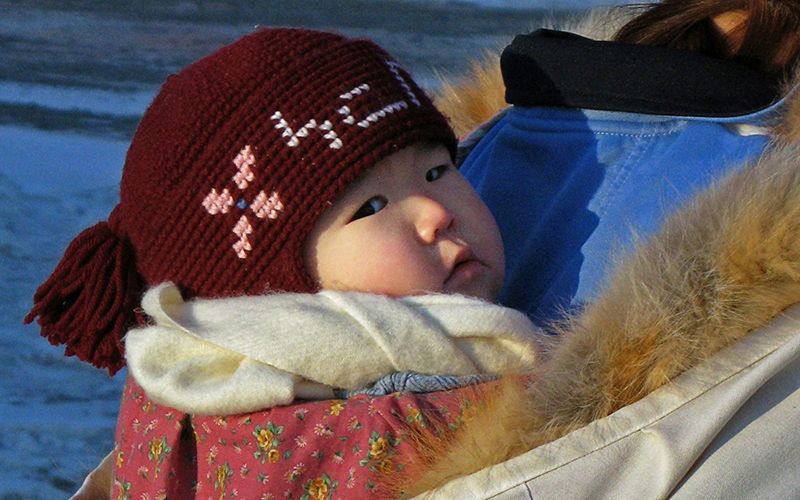Research shows newborn babies in some Arctic regions have the highest rates of serious lung infections ever recorded in medical literature.

A paper published Tuesday in the Canadian Medical Association Journal says cases in Inuit infants in northern Quebec and western Nunavut are so numerous, it would be cheaper to treat all infants with a preventative medicine than wait until they get sick.
“These are the highest rates in the world, higher than sub-Saharan Africa,” said lead author Anna Banerji of the University of Toronto.
READ MORE: What’s killing babies in Canada’s North?
Banerji and her colleagues have been studying respiratory infections among newborns in the Arctic for years. It’s long been known the Canadian Arctic has abnormally high rates.
But Banerji’s latest study, which looked at differences between different regions, surprised even her.
“Some of these rates are the highest documented rates in the medical literature.”
In Nunavut’s westernmost region, more than 40 per cent of all babies born in 2009 were later admitted to hospital with lung infections. In the area around western Hudson Bay, the figure was 24 per cent.
And in Nunavik, or Arctic Quebec, nearly half of all newborns were hospitalized.
Overall, lung infections for newborns just months old were 40 times southern rates, Banerji said.
READ MORE: Ottawa slammed on First Nations funding for child welfare, suicide prevention
Just as alarming was the severity of the infection.
The research paper documents cases of babies less than six months old spending weeks in intensive care and suffering permanent lung damage. Some needed CPR. Some needed last-ditch interventions.
Some died.

“These are just horribly, horribly sick kids,” said Banerji.
In the worst-afflicted areas, up to one in every 30 children born ends up in intensive care and struggling to breathe.
The reasons are familiar: overcrowded homes, high exposure to cigarette smoke, poor nutrition. The lung infections are often complicated by other infections such as influenza.
READ MORE: Canadian First Nations women face 87% lifetime risk of diabetes, study warns
Banerji said Inuit may also have a genetic predisposition to these types of infections.
But until those environmental conditions are addressed, a medicine called palivizumab is effective against such infections. The Canadian Pediatric Society has recommended it be given to all newborns in Nunavut.
The territory currently gives the medicine only to children born prematurely or who have chronic heart or lung conditions. The region of Nunavik has recently changed its policy and will administer the drug to all newborns.
READ MORE: Aboriginal-Canadians are 6.4 times more likely to be killed than other Canadians
Palivizumab costs about $6,500 an infant. Banerji said the cost of treatment, including flying sick kids south, is so high that it would be cheaper to give it to all babies born in the worst areas.
She says that policy would save $36,000 for each hospital admission avoided. It would also save wear and tear on families.
“A mother has to either come with her two-month-old baby to the hospital in Ottawa and leave all the rest of the kids behind, or the baby’s there all alone. It has a huge societal impact.”
The government of Nunavut has received a copy of the paper. The territory’s chief medical officer of health was travelling Tuesday and not immediately available to react to its findings.



Comments